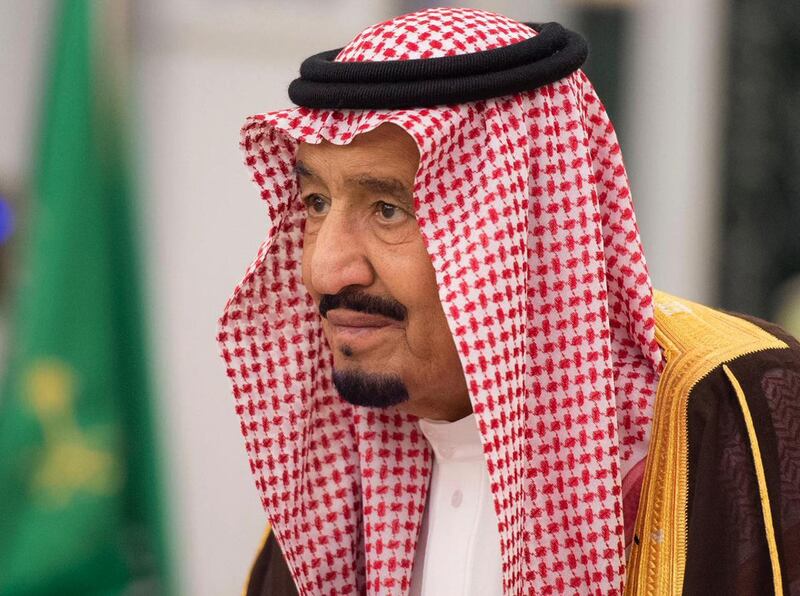Saudi Arabia’s King Salman issued a royal decree on Saturday to protect whistleblowers in corruption cases after some were mistreated following the submission of reports detailing misappropriation and embezzlement.
“The employees are not to be threatened regarding job security, benefits or rights,” Khalid Al-Muhaisen, the chairman of the Saudi National Anti-Corruption Commission said in a statement from the Ministry of Culture and Information. The decree stipulates “the National Anti-Corruption Commission shall report entities that take disciplinary action against employees or threaten their rights or job benefits if they report corrupt practices to the commission."
Saudi Arabia, the Arab world’s largest economy, launched a sweeping anti-corruption campaign in November 2017 that rounded up some of the kingdom’s most prominent businessmen, including Prince Alwaleed bin Talal. Saudi Arabia says over tens of billions of dollars have been misappropriated through corruption and embezzlement.
The campaign against corruption is part of the country’s wide-ranging Vision 2030 economic and social reform plan conceived in 2016 which seeks to lessen the kingdom’s dependence on oil revenues, diversify the economy and grow its industrial and manufacturing capabilities. As well as tackling corruption, the reform plan reduces subsidies, raises taxes and aims to sell off stakes in state-owned companies such as Aramco, the world’s biggest oil producer.
____________
Read More:
[ Bank of America Merrill Lynch upbeat on Saudi Arabian stocks despite corruption clampdown ]
[ Saudi Arabia moves to reassure investors in wake of anti-corruption crackdown ]
____________
Efforts are already paying off. The kingdom’s economy, which contracted last year, is forecast to grow 1.7 per cent in 2018, according to the International Monetary Fund.
“The new decree aims to protect and shore up the defences of whistle-blowers, as Saudi continues to work on improving its legal transparency and business-friendly rules and legislations, which are part of its pursuit to diversify the economy and attract higher levels of foreign direct investment,” said Mohamed Bardastani, Dubai-based senior economist at Oxford Economics. “The new measure is yet another step to ensure the eradication of corruption.”
Mr Al Muhaisen said that King Salman and Crown Prince Mohammed bin Salman “are keen on fighting corruption and protecting the interests of citizens and residents who fulfill their duties and report corruption.”
The kingdom has in recent years improved its standing on global corruption indicators. The World Bank’s latest 2016 corruption indicator showed that Saudi Arabia improved its score by 18 points, the biggest gain since it entered the report in 1996. Separately, the country is ranked 62 out of 176 countries in the 2016 Corruption Perception Index produced by Transparency International.





